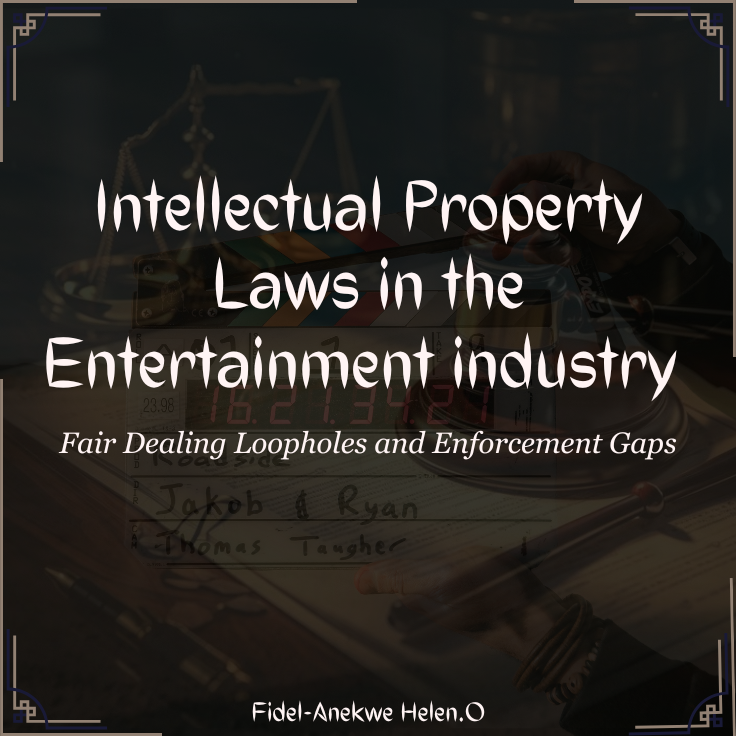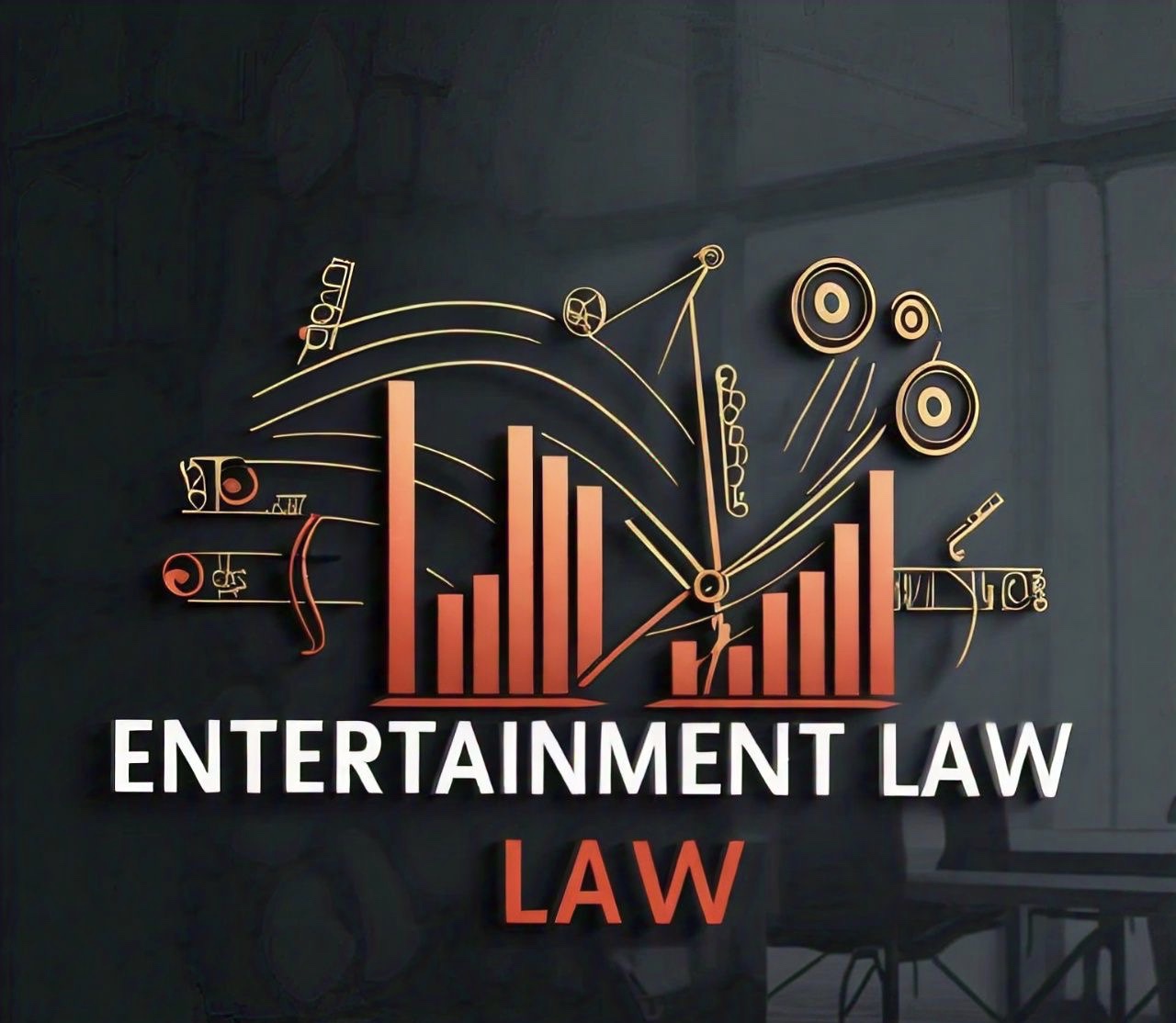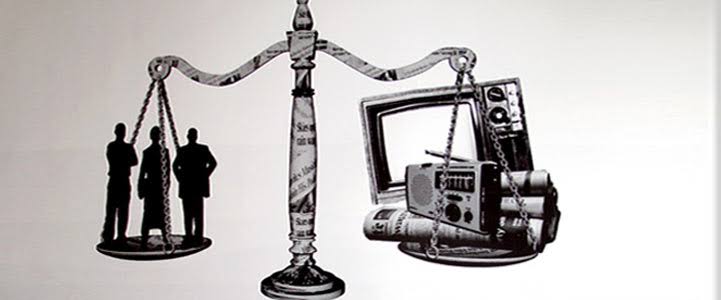
Intellectual Property refers to the creation of the mind, everything from works of arts to inventions, computer programs to trademarks and other commercial signs. The entertainment industry is a great bundle of intellectual property and as such the need for laws to govern this intellectual property arises. This article is concerned with the intellectual property laws that lord over the entertainment industry.
To understand intellectual property law there has to be an understanding of intellectual property. Intellectual Property can be divided into two categories- industrial property and copyright and related rights. Patents, industrial design, trademarks and geographical indication fall under the category of industrial design.
Industrial Design
- Patents: A patent is an exclusive right granted to an invention. This means that when an inventor patents an invention he or she can stop its use, make or sell if it is done without permission. To qualify for patent protection an invention must be of some practical use and must offer something new which is not part of the existing body of knowledge in the relevant technical field. It must also involve an innovative step that is not obvious to a person with average knowledge of the technical technical field and must not be under non patentable subject matter.
- Industrial design: An industrial design is an original creation of an ornamental nature which when incorporated in or applied to a product lends a special appearance to it. Industrial design law only protects those aspects of a product that are ornamental. In most places, the design must have a degree of originality, meaning that it is not identical or very similar to any previous designs. Also, such design must be capable of being produced industrially.
- Trademark: A trademark is a sign capable of distinguishing the goods and services of one enterprise from those of other enterprises. It protects businesses from counterfeiting and helps customers to know which product is genuine. A trademark must be distinctive and not identical to a trademark already registered or used for that type of product or service.
- Trade secrets: These are intellectual property rights on confidential information which may be sold or licensed. In order to qualify as a trade secret, the information must be commercially valuable because it is secret,be known only to a limited group of persons, and be subject to reasonable steps taken by the rightful holder of the information to keep it secret.
- Geographical indication: A geographical indication is a sign used on products that have a specific geographical origin and possess qualities or a reputation that are due to that origin. In order to function as a geographical indication a sign must identify a product as originating in a given place and the quality or characteristic of the product should be essentially due to that place of origin.
Copyright and Related Rights
- Copyright: A copyright is used to describe the right that creators have in their literary artistic and scientific works. It applies to decorative expression of ideas in different forms. Copyright include both economic rights- the right to control the distribution of a work and moral rights-which includes the right to to be acknowledged at the author of the work and to prevent it from being altered in a way that might damage the creators reputation.
- Related rights are rights granted to a few categories of people for their important role in communicating and disseminating some types of work to the public. Related rights include the rights of the performers, the rights of producers and the rights of broadcasting organizations.
Intellectual Property Laws That Govern The Entertainment Industry.
- Copyright Laws: Copyright laws grant creators the exclusive rights to their original works. These rights include the right to reproduce, distribute, perform and display the work. Copyright protection is automatic upon creation, meaning that as soon as the work is fixed in a tangible form it is protected. For instance, copyright laws safeguard musicians' original composition from being used without permission.
- Trademark Law: Trademark law plays a significant role in the branding and marketing of entertainment products and services trademarks are vital for building and protecting brand identity in the entertainment industry. Trademarks protect the names, logos and slogans associated with films.
- Patent law: In the entertainment industry, patents can be sought for new technology, processes or devices that have practical application in the creation, production or distribution of entertainment content. For example streaming platforms like Netflix or Spotify may be eligible for patent protection.
In conclusion, intellectual property law plays a crucial role in the entertainment industry by helping creators and artists protect their work from being used or copied without permission. This protection encourages creativity and innovation by assuring creators that their work is safeguarded. Without this assurance, creators and artists might be wary of, or refrain from, creating anything at all, potentially leading to the absence of the entertainment industry as we know it. This goes to show that intellectual property is truly the 'lord' over the entertainment industry.
References
- World Intellectual Property Organization, "About Intellectual Property." https://www.wipo.int/about-ip/en/.
- World Intellectual Property Organization. "What is Intellectual Property?" WIPO Publication No. 450E.
- World Intellectual Property Organization. "Understanding Copyright and Related Rights". WIPO Publication No. 909E.





